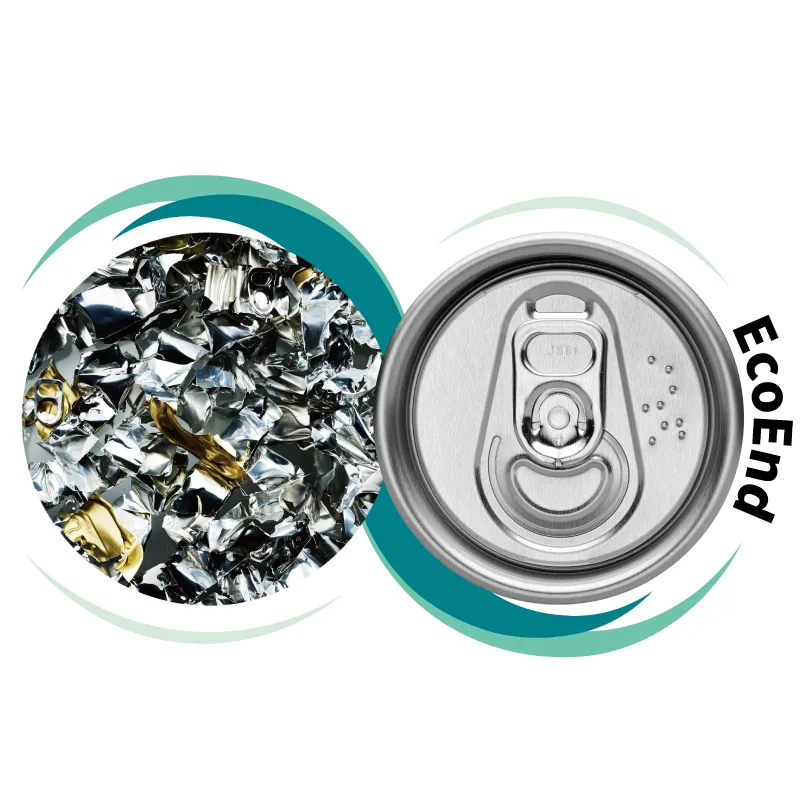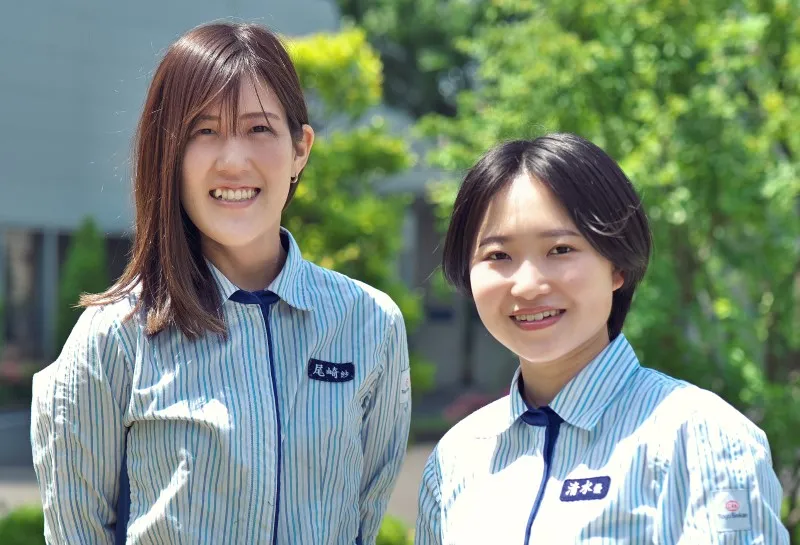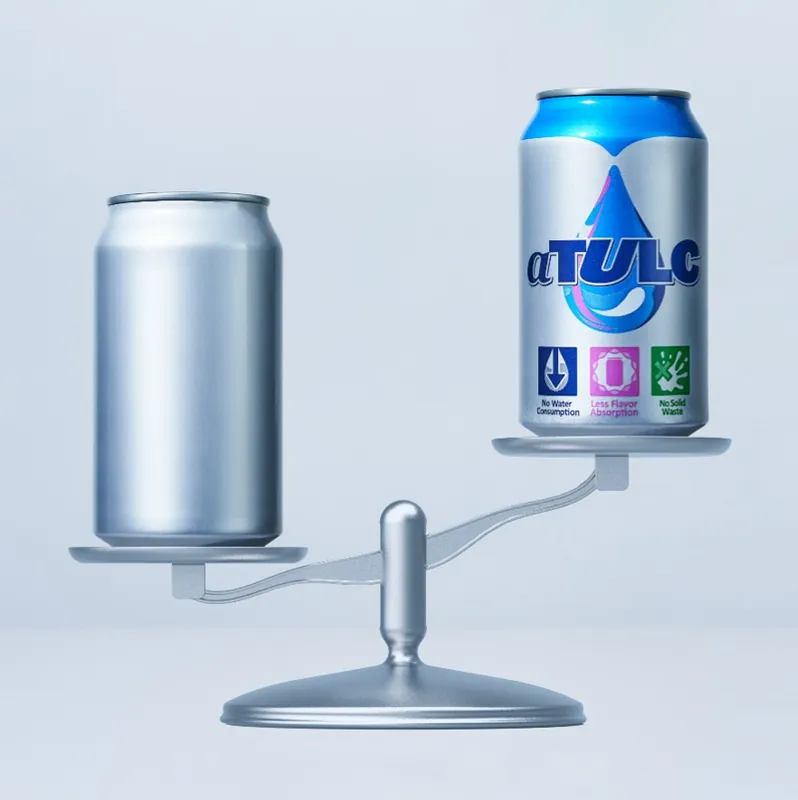EcoEnd™ reduces GHG emissions by approximately 40% compared to conventional lids by increasing the use of recycled materials, resulting in a reduction of about 13,000 tons per 1 billion lids. Furthermore, if all beverage can lids sold domestically by Toyo Seikan were replaced with EcoEnd™, an annual reduction of approximately 140,000 tons of GHG emissions is expected. This is equivalent to the annual CO₂ absorption capacity of roughly 10 million cedar trees.
Ozaki: While aluminum cans have established recycling systems, the recycled content ratio in lids remains low compared to can bodies, which became the focus of our efforts. The Toyo Seikan Group’s Eco Action Plan 2030 strives to realize a decarbonized society, so to maximize GHG reduction effects, we aimed to develop an environmental friendly next-generation lid unlike ever before.
We collaborated with UACJ Corporation, an aluminum manufacturer, to jointly develop both the material and the lid.
Ozaki: Increasing recycled material content raises the concentration of chemical components derived from recycled materials and increases the amount of intermetallic compounds. The heightened presence of these compounds can impact container performance in many ways, such as coating breakages during lid forming or changes in ease of lid opening.
Although UACJ’s material technology reduced intermetallic compounds, they couldn’t be fully eliminated. We addressed these challenges through forming technology
while focusing on ensuring pressure resistance without increasing the lid thickness compared to conventional lids.
Shimizu: Due to changes in the material properties of aluminum, we had a very difficult time reviewing the forming method. For example, the drinking opening formed with existing forming methods did not meet the pressure resistance standards, requiring us to change the forming tools to minimize damage to the material. We repeatedly refined and tested tools to find the optimal geometry.
I reaffirmed that since lids need to satisfy various performance criteria, they must be designed with various factors in mind.
Shimizu: Because of high production volume, we started development with only beer can lids but are considering expanding the range of lids for carbonate soft drinks or other applications. We believe there are many challenges, as these lids would require higher pressure resistance that our current product.
We're also exploring development of tabs made from aluminum with increased recycled content. As you can see from the back of the tab, tabs are manufactured by curling, which makes it difficult to form with this type of aluminum.
We will strive to develop more environmentally friendly products as we meet EcoEnd™'s challenge of balancing strength of lid and ease of opening.
- Reduction in Greenhouse Gas (GHG) Emissions by Approximately 40% Building the Production System for EcoEnd™ Next-Generation Beverage Can Lid
- [2024.11.18 Press Release] Toyo Seikan and UACJ's Next-Generation Aluminum Beverage EcoEnd™ Can Lid Wins Three Awards at The Canmaker Cans of the Year Awards 2024
- [2024.7.9 Press Release] Completion of the mass production system for "EcoEnd™," the Next-Generation Beverage Can Lid, Which Achieves a 40% Reduction in Greenhouse Gas Emissions - A Collaborative Effort by UACJ and Toyo Seikan -
- [2023.12.4 Press Release] Development of Next-Generation Eco-Friendly Can Lid 'EcoEnd™' with Major Revisions to Materials and Manufacturing Methods - Joint efforts by Toyo Seikan and UACJ reduce greenhouse gas emissions by 40%






